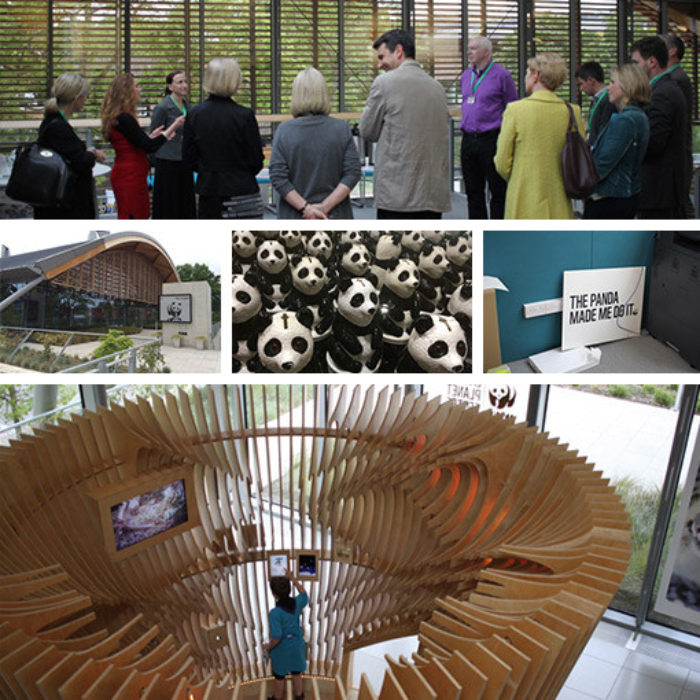6 ways to change staff behaviours for a more sustainable 2023 at work and home
Encouraging our collective workforce to adopt more sustainable behaviours is a no-brainer to accelerate the transition to Net Zero. For all businesses and organisations tackling Scope 3 emissions, creating an enabling supportive environment for employee behaviour change is often step one.
Not surprisingly, edie’s Net-Zero Business Barometer 20221 found that staff behaviour change programmes are again the number one priority for business investment, with 67% of sustainability professionals saying delivering staff behaviour change initiatives that reduce emissions, energy use and/or waste is a ‘very or ‘extremely important’ priority for 2022.
A body of evidence shows which behaviours matter most, both in the workplace and at home. According to the Committee on Climate Change2, 62% of future emissions reductions depend on citizens changing behaviours, particularly switching to low-carbon heating systems, using electric vehicles, walking or cycling more, flying less, eating less meat and dairy, and reducing food waste.
The subject of ‘behavioural spillovers’ is also attracting attention, with increasing evidence that positive behaviours learned in the workplace can spill over into other parts of our lives.
So how are organisations using the workplace to support staff to adopt climate and nature positive behaviours? Here are some examples and resources to support you on your journey:
1. Capture hearts and minds: Use film to inspire and connect colleagues
If you can spare 38 minutes during your lunch today, watch this film3. As expected from the collaboration of WWF, Netflix and Silverback Films, the “Our Planet: Our Business” film is as powerful and emotive as the 2019 “Our Planet” series narrated by Sir David Attenborough, which was Netflix’s most successful documentary series to date. The film explores how the global business community can help to tackle the climate and nature crisis, showing how biodiversity is key to the stability of the world as we know it, with soundbites from thought-leader interviews with Johan Rockström, Christiana Figueres, Kate Raworth and others.
Hundreds of organisations have hosted screenings of the film for colleagues and contacts in over 50 countries to discuss topics raised and possible solutions, and many more citizens have been reached online. According to PWC4, 96% of staff who attended a screening said they were inspired to take action in their personal lives, 81% said they were likely to talk to clients about it, and 100% felt that business should set strategies to tackle the issues presented.
2. Enable social signalling
Evidence for promoting pro-environmental behaviours shows that the actions of our social networks are the most important driver of our own behaviour. Workplaces provide a natural community of interest, and an environment where colleagues can model their social identity. Organisations can show leadership and create social opportunities to demonstrate desired behaviours, e.g. by encouraging food-sharing lunches to reduce food waste, or by promoting more plant-based or healthier meal choices. Recent insight shows that effort to reduce food waste at work is associated with food saving actions at home, pointing to positive spillover effects5.
Many organisations are seeking to influence workplace food choices. For example, we worked with IGD to create the Eat Wise Work Wise6 campaign showcasing how businesses are making balanced food choices easier at work. Drawing on extensive behavioural research with 14 major food businesses and the University of Cambridge, the campaign includes free evidence-based tools to improve food provision and support health and wellbeing.
Similarly, we worked with the RSPB to explore opportunities for behavioural interventions to influence colleagues, volunteers and supporters to make more Nature Friendly eating choices. The ultimate aim is that by 2030, people eat 50% less meat and dairy, sourced from nature-friendly farms. Through co-production with colleagues, we reframed the messaging to avoid the language of lack, and more effectively appeal to all stakeholders who benefit from nature-friendly eating.
The scale of interest in workplace food interventions will continue to increase. In 2021, 63 organisations signed up for the Veganuary Workplace Challenge7, including major brands and retailers. Its how to guide for businesses is full of ideas and activities to motivate teams, including nights out, communal lunches, film screenings and a cookbook library.
3. Collaborate and share tools to scale what works
Project Drawdown’s Drawdown Labs8 is a consortium of private sector partners that have come together to experiment with collaborative ways to address climate change at scale, and offer a transformative vision for private sector climate leadership. It has published a free “Climate Solutions at Work” playbook9 that aims to help employees take bolder climate action in the workplace. The how to guide includes actions from reducing emissions to engaging employees on climate action, policy advocacy, disclosure, offering climate-friendly pensions and more.
4. Ensure it is easy to act
In the USA, WeSpire’s Employee Carbon Management Solution10 includes an app and website that empowers employees to understand their personal carbon footprint and take actionable steps to reduce their impact at home and at work, through curated actions based in behavioural science.
In the UK, The John Lewis Partnership is working with the Energy Institute to deliver its “EnergyAware” digital training programme to support all 29,000 staff to reduce energy consumption at home and in the workplace11. The training tells staff how much of an impact they can make through small changes to their day-to-day routines and processes at work, to emphasise how important staff are to the delivery of the organisation’s 2035 net-zero roadmap.
5. Use gamification, competition and incentives
Many organisations are adopting gamified solutions, particularly in the NHS. For example, Manchester University NHS Foundation Trust (MFT) ‘Green Rewards’ programme, uses gamification, communications, a website and app to reach its 28,000 employees. The programme features activity modules such as sustainable commuting, switching off electricals, and using stairs instead of lifts. Gamification features, including points, leader boards, teams, and prizes, are motivating hospitals, departments and individuals to change behaviours.
Similarly, five organisations across the Dorset Integrated Care System are collaborating to deliver the “EcoEarn” scheme12, which rewards 24,000+ staff for their daily actions to reduce emissions, energy use, water and waste at work and at home. By logging actions, staff receive ‘Green Points’, which winners can convert into donations to charity or vouchers for local stores.
Incentives are not always financial. Many organisations are reducing scope 3 emissions from business travel and commuting by simply allowing colleagues to work from home more often. Existing schemes such as the Cycle to Work scheme13, are also popular, enabling staff to spread the cost of a new work bike over monthly tax-free instalments through payroll.
6. Change the default
Perhaps the most effective way to change behaviours is simply to change the default or pre-set option, as we are hard-wired to go with the flow. There are many examples, from defaulting people to opt into green energy tariffs, to workplace pensions and organ donation schemes. To encourage dietary shift, WeWork, the office space company, changed the default catering option to no longer provide meat products to employees at events, nor to reimburse staff for purchases of meat on expenses.
Whilst there are many examples of successful interventions to change staff behaviours, things can also go wrong, prompting negative reactions from reactant employees. Developing a strategy based on authentic human insight and careful framing is essential.
Let’s talk
To talk about how we can help you change workplace behaviours, please do get in touch via Belinda.Miller@CorporateCulture.co.uk
Sources:
- https://www.edie.net/the-net-zero-business-barometer-2022/
- https://www.theccc.org.uk/publication/net-zero-the-uks-contribution-to-stopping-global-warming/
- https://www.ourplanet.com/en/video/our-planet-our-business/
- https://www.pwc.co.uk/who-we-are/our-purpose/case-studies/our-planet-our-business-at-pwc.html
- https://www.researchgate.net/publication/354590704_A_Take-Home_Message_Spillovers_from_Workplace_Food_Waste_Campaigns_to_the_Home
- https://www.igd.com/Social-impact/Health/Workplace
- https://veganuary.com/wp-content/uploads/2021/09/US-Veganuary-2022-WPC-Guide.pdf
- https://drawdown.org/programs/drawdown-labs
- https://drawdown.org/publications/climate-solutions-at-work
- https://www.wespire.com/employee-carbon-management/?utm_source=pr-ECM
- https://www.edie.net/john-lewis-partnership-launches-online-training-in-energy-efficiency-for-all-staff-amid-energy-price-crisis/
- https://www.edie.net/dorset-based-nhs-organisations-launch-gamified-staff-behaviour-change-scheme-on-road-to-net-zero
- https://www.sustrans.org.uk/our-blog/get-active/2019/everyday-walking-and-cycling/the-cycle-to-work-scheme-explained/




